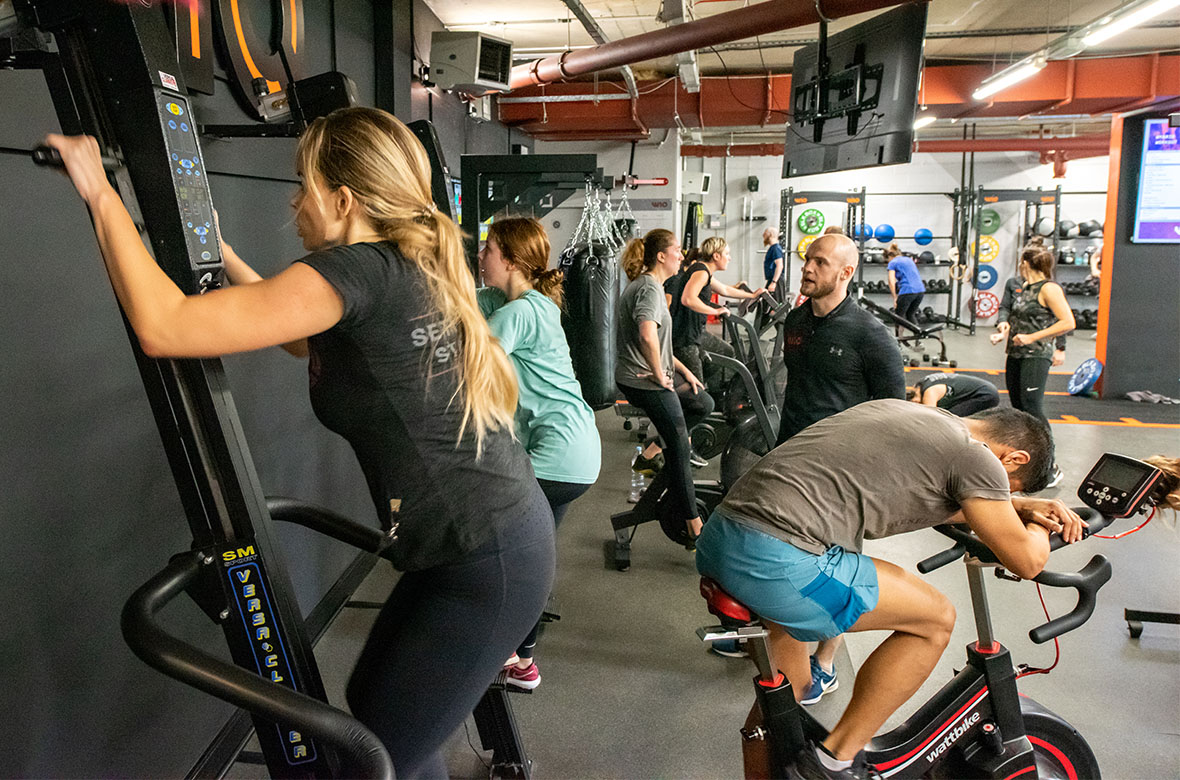
Categories
Exercising When Sick – When It’s Safe to Workout?
Let’s face it, everybody gets ill from time to time, especially this time of year. But is it safe to exercise when you are feeling sick?
Do you exercise when sick or just put your feet up and rest?
It’s that time of year when the seasons have changed and we experience the darker, colder mornings, the central heating switches on, and more time is spent indoors than outdoors. And with more time being indoors it means you’re more likely to be sharing germs with others, or your lovely children being back at school means that they’re bringing the bugs back home to share with you. Delightful! So, how do you know if it’s safe to exercise when you are sick?
Most can relate to being struck down by illness as the winter approaches. Waking up with the beginnings of a cold, sore throat and generally feeling under the weather will likely occur at some point during this season for many of us. It can be a frustrating time, particularly if you felt as if you were just getting into a routine post summer hectic-ness, and you were nailing consistency with training and seeing some progress. You’re motivation to keep going is high, but then illness strikes and you’re irritated. Added to this, you’re concerned that this bump in the road is going to hinder your journey to success and you don’t feel like taking time off from your now established routine. It can be difficult to know whether it’s best to just battle through and carry on with your exercise routine, or to rest and recover.
One of the common questions that we get as trainers is, “is it okay for me to train when I’m sick”. The answer to this as with many questions is, “it depends”. Ultimately, you will need to make a call yourself, but there are some guidelines you can use to determine what to do when illness strikes. Broadly speaking, your symptoms can help you decide whether to train or not.
Identifying your symptoms
If symptoms are present above the neck then you are generally okay to exercise. So things like: a runny nose, nasal congestion, sore throat. i.e. a common cold are probably symptoms in which your body will be able to tolerate some exercise, and you might actually feel better doing so.
However, if your symptoms are from the neck down, such as: a chesty cough, shortness of breadth, body aches, flu, a fever, upset stomach, you should rest. In these cases exercise will compromise your immune system and thus your recovery. When you have a fever, exercise is only going to raise your core body temperature, which can be dangerous. At this time your body needs to spend its energy fighting whatever illness or infection you have, and so energy spent exercising is only going to stall recovery.
Listen to your body
While there are guidelines on the types of illness that permit exercise, the decision is very individual depending on how you are feeling. You know your body better than anyone else – and will know the difference between feeling a little sub par, and completely wiped out; use this as a barometer to help you make a decision. Having an extra day (or few) rest is not going to stall your gains in the gym; in fact sometimes it’s exactly what your body needs. You’re the grown up, make a sensible call!
Things to consider if you are exercising
If you have made the decision to exercise when you are sick, here are some factors to be mindful of when training:
1.Intensity of your workout
Don’t expect to be able to train as your usual healthy self would. You’ll need to make your sessions lower / moderate intensity while your body recovers. This might mean making your high intensity cardio more steady state low intensity, or taking a heavy weights session down to more moderate loads. Just be mindful not to elevate your heart rate or core body temperature too much. You really don’t want to push too hard when you’re not feeling 100%.
“Overdoing a workout will only hamper your immune system and worsen or extend the duration of a cold.”
Walsh, 2015
Ultimately listen to your body on that day, and tailor your session accordingly.
2.Staying hydrated
Colds are dehydrating, so it’s more important than usual to stay hydrated if you’re under the weather. Your body requires more fluid to ease congestion, so be sure to sip on water as you are training.
3.Being mindful of others
When you’re training in a space / gym with other members try and be considerate of them. If you’ve made the decision to train, try and be as hygienic as possible – take some tissues for your runny nose, and always be sure to wipe down kit to prevent spreading your germs!
Illness prevention: staying active and eating well
Exercise
Thinking about prevention before cure, exercise in itself is a great way to prevent illness – with benefits to your immune system that make you more likely to fight against illness and infection in the future. When you’re not sick, exercising can help maintain a healthy immune system (Matthews et al, 2002). People who exercise and stay active are usually sick less often than people who live sedentary lives. So make exercise a priority for your health, and in the long term your body will be more resilient as a result.
Nutrition and supplementation
Eating a balanced diet, with lots of fruits, vegetables and mainly whole-foods will ensure that you get a good dose of a wide range of vitamins and minerals. This is a great way to stay healthy and maintain a strong immune system.
Vitamin D is probably the only vitamin (especially in the Northern hemisphere) that we can’t get a good enough dose of through food alone. It’s an important vitamin for bone health and supporting your immune system. As we rely on the sun for our intake of Vitamin D, it’s especially important in winter months with darker days that we take this supplement.
Conclusion
It’s okay to miss training if you’re not feeling well – in fact, rest in some scenarios might be better than training for your recovery. Ultimately, you need to make the call as to the severity of your symptoms, and whether a light session or rest is going to be the best option for you.
When returning to the gym after illness, don’t assume that you’ll be okay to jump back straight into your old exercise routine, with the same intensity. You might need to scale things back, watch the intensity or even frequency of your workouts to ensure that you get back to your old regular training routine, only when all your symptoms have disappeared. Health is a long term game, you need to be kind to your body and treat it with respect!
If you have any questions on the above or would like some advice on how we could help you with your fitness goal, don’t hesitate, visit our gym and try one of our small group personal training sessions.
Related Articles
- Fitness Training & Nutrition – A Match Made in the Gym
- Tips to Improving Your Sleep for Better Results
- Get Strong: Why Strength Training is Good for Mental Wellbeing
- Man Flu: Only the Strong Survive?
- Should my Personal Trainer Make Me Sick?


